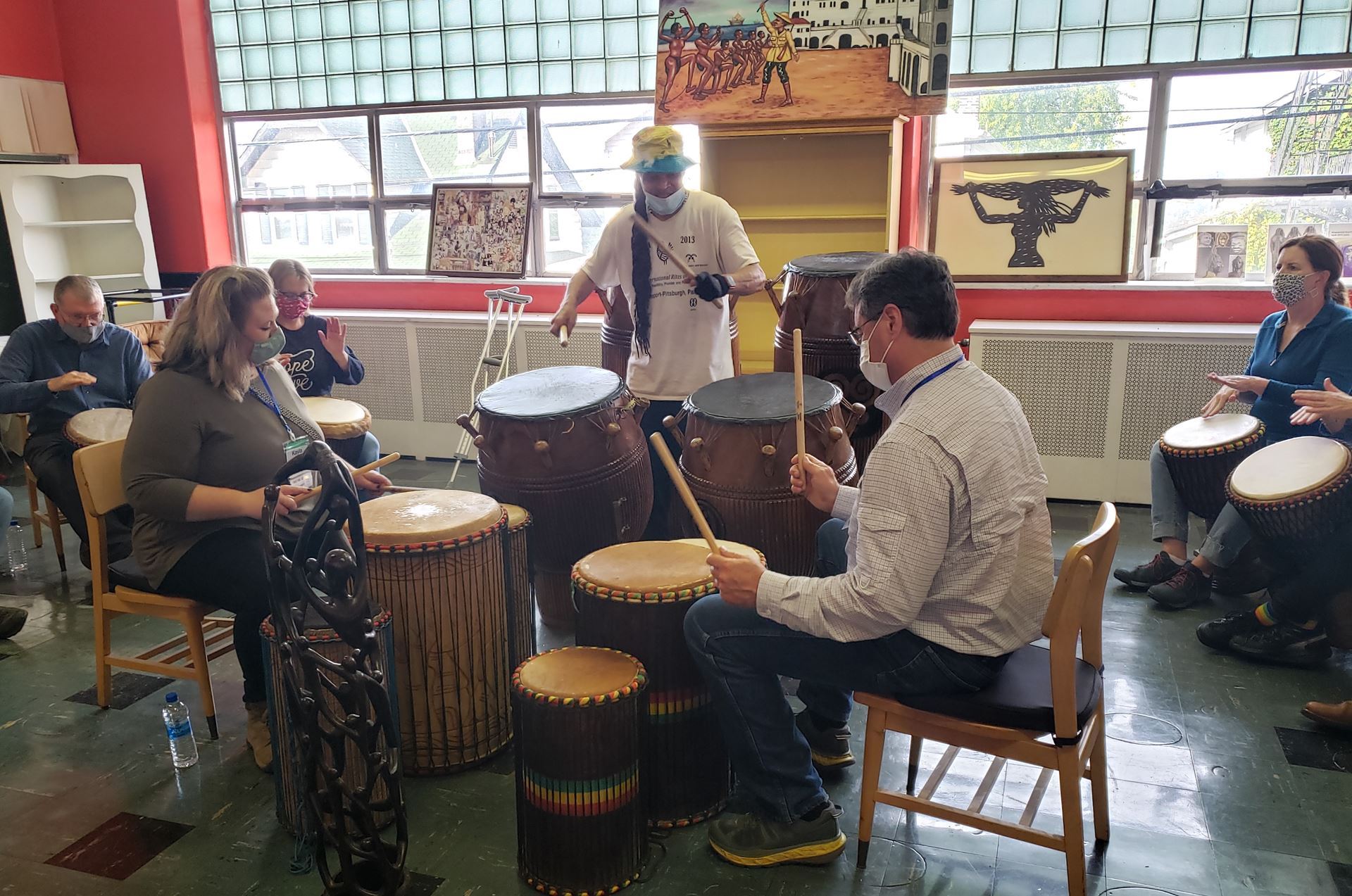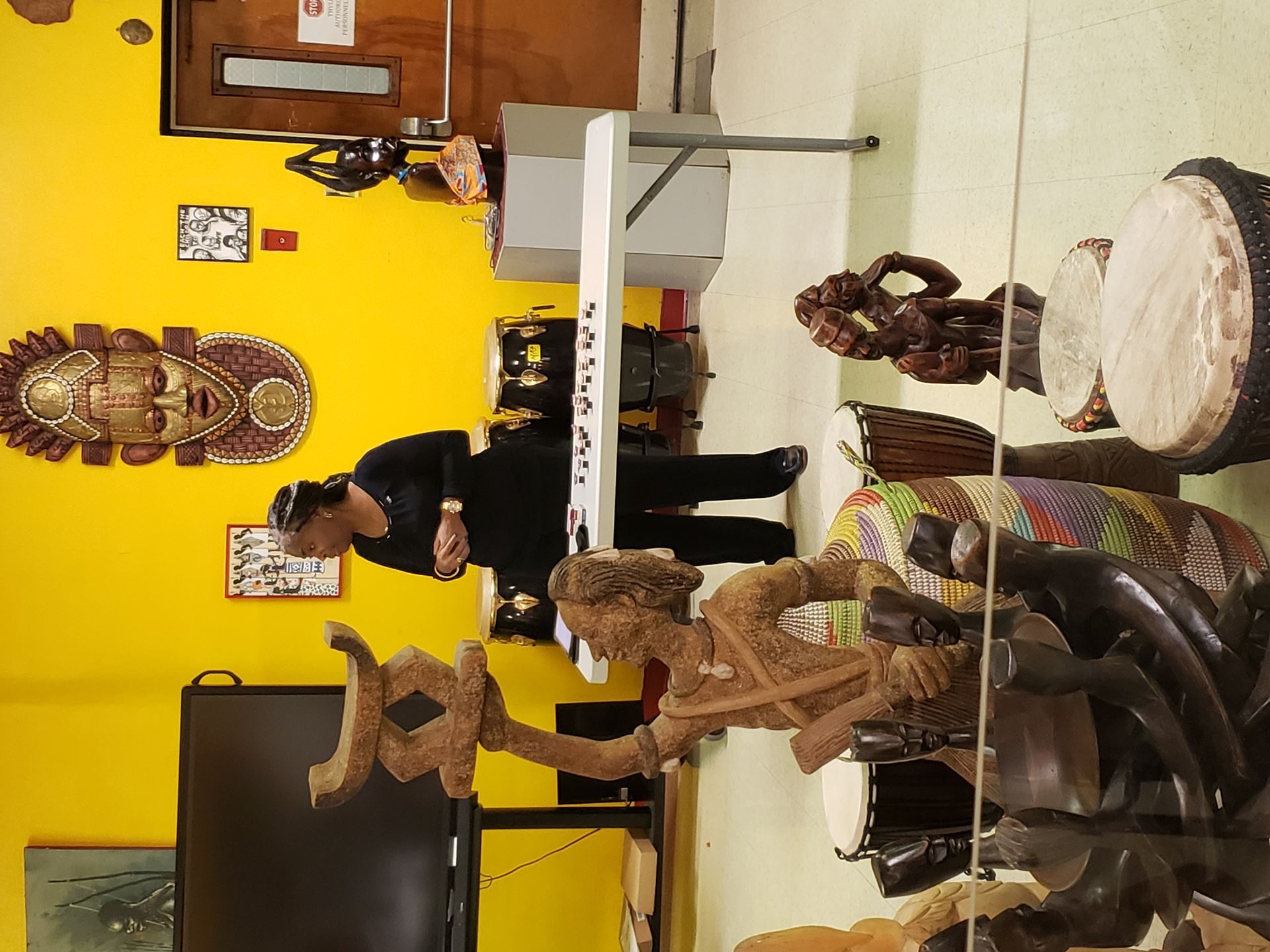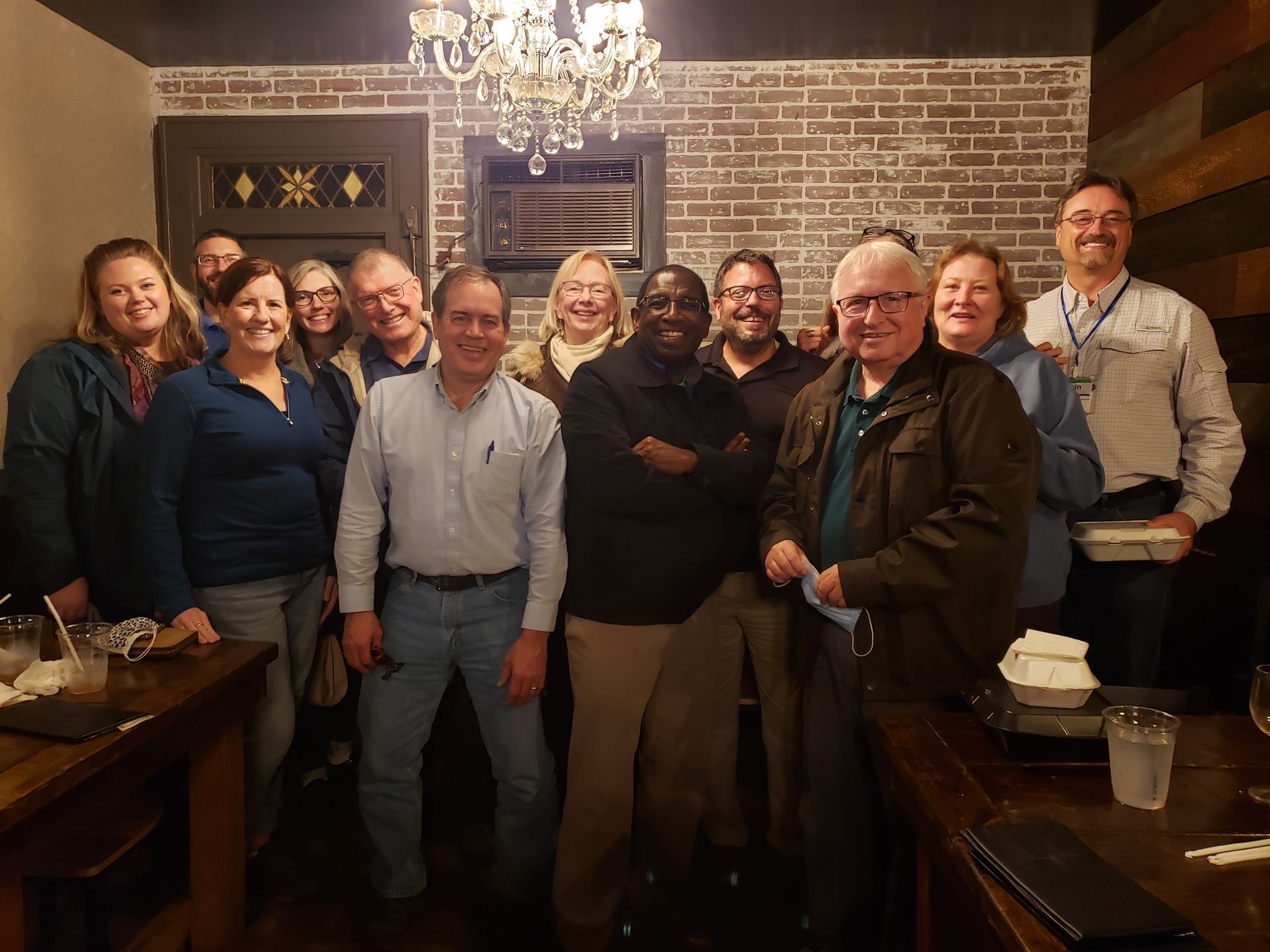Camp & Retreat Executives and Conference CRM Staff gather each year for an annual Summit. This year’s event followed the UMCRM National Gathering. During the first afternoon our group drove to the Healthy Village Learning Institute (HVLI) in an urban neighborhood of Pittsburgh, PA. We parked our six cars in an area next to a four story brick former school building, the lower level covered with commissioned graffiti art. Inside, we walked through African drums (hundreds distributed throughout the building) and a loosely organized massive collection of historical African, African American, slave-era and beyond art and artifacts, covering tables, the walls and the floor with paths left for us to walk.
Keith Murphy, founder and Executive Director of the Institute, gave us a tour and told the story of the miracles taking place through his ministry. The Institute serves children in this community with the fourth highest rating for violence per capita in the state of Pennsylvania. The children come to study, to learn, to find peer and adult leadership support, to express themselves through the arts, and to discover the beauty and gifts of who they are as God’s people. Just as week-long camps serve as spaces for young people to step away from society and into God’s Creation, HVLI serves as a year-round space for members of the community to daily step away from the stresses of life and fully focus on God’s call on their lives.
 In the center of the first-floor room, around 15 tables were set up in a circle with plexiglass protections for Covid. Each table had a laptop, with books on racism and Black literature next to the computers. This clearing was surrounded by hundreds (thousands?) of museum-quality artifacts. In this room, we held and hefted various weighty chains and shackles worn by slaves and felt the switches used in various forms of punishment of slaves. Everything in the building is there to be touched and experienced and not just intellectually learned about. Several tables were filled with signs and artifacts from the post-Civil war era which were visible and tangible demonstrations of the prejudice, oppression and racism which continued (continues) to be present across the decades.
In the center of the first-floor room, around 15 tables were set up in a circle with plexiglass protections for Covid. Each table had a laptop, with books on racism and Black literature next to the computers. This clearing was surrounded by hundreds (thousands?) of museum-quality artifacts. In this room, we held and hefted various weighty chains and shackles worn by slaves and felt the switches used in various forms of punishment of slaves. Everything in the building is there to be touched and experienced and not just intellectually learned about. Several tables were filled with signs and artifacts from the post-Civil war era which were visible and tangible demonstrations of the prejudice, oppression and racism which continued (continues) to be present across the decades.
Seeing and touching and hearing the stories was a powerful reminder and awakening of the legacy of racism in which we live. This could have been depressing and overwhelming, except that the stories told by “Murphy” extended our experiences into the hope of his ministry and mission through this institute. The computer tables give the children who participate, access to the internet. However, before they access the computers (or any activity throughout the building), they have to read at least one chapter from one of the books. Many of the walls are covered with pictures of the students (“Murphy” could name them all – and which university or college or school they attend) and with the incredible artwork of some of the students. Students come seeking a place to be and belong and they leave as future leaders made whole by their experiences.
 Each room on each floor has a theme and purpose, from art to science to technology to Black Women and Black Men to culture and on. There are posters with affirmations, quotes from Black leaders and the educational philosophy providing the foundation to the institute, such as: “The Healthy Village Learning Process with four quadrants of Peace, Possibility, Power and Promise” and “MAPS (McKeesport Alternative Policing Strategies) – Goal is to Reduce Gun Violence either by Prevention or Intervention, using P.O.W.E.R (Positive Outcomes With Excuses Removed) by Providing young adults with productive, citizenship-oriented alternatives and Giving at-risk individuals opportunities to become Stakeholders in McKeesport.”
Each room on each floor has a theme and purpose, from art to science to technology to Black Women and Black Men to culture and on. There are posters with affirmations, quotes from Black leaders and the educational philosophy providing the foundation to the institute, such as: “The Healthy Village Learning Process with four quadrants of Peace, Possibility, Power and Promise” and “MAPS (McKeesport Alternative Policing Strategies) – Goal is to Reduce Gun Violence either by Prevention or Intervention, using P.O.W.E.R (Positive Outcomes With Excuses Removed) by Providing young adults with productive, citizenship-oriented alternatives and Giving at-risk individuals opportunities to become Stakeholders in McKeesport.”
The youth who participate at the Institute are guided, trained, inspired, and educated with deeply ethical and creatively firm guidelines from their adult leaders. As an example, one room had a circle of around 12 African drums and, at the center, a group of another several large standing drums (all of which in the whole building, Keith Murphy brought back from his trips to Ghana). We sat in the chairs to play the drums while he and his nephew led us in call and response drumming. He then explained that if a child “loses it,” they are often sent to the drum room with an adult. They call and response pound the drums until the child has calmed down; then they can talk – much better than a time out or a trip to the Director’s office.
On top of all this, Murphy is interconnected with the surrounding community, working tirelessly for justice and opportunity for all. He is a witness to what one person with a faith built on Christ’s love and his own passion and determination to transform our world can do, beginning right where he lives, in McKeesport, Pennsylvania. By welcoming us to hear and experience his witness, his ministry of transformation has expanded to each of us who participated in this afternoon tour. We entered the tour as Camp/Retreat Ministry leaders and left with hearts and minds expanded with ideas for how we too might be transforming, faithful disciples in our own settings. Thanks be to God for saints like Keith Murphy and for all who support and participate in his ministry.
Joy and peace,
Sue D'Alessio
Director of Connectional Ministries,
Ministry and Outreach
Wisconsin Annual Conference
(in collaboration with Jessica Gamaché)
 Summit attendees pictured: Kayla Hardage (AR), Chris Schlieckert (Balt-Wash), Nancy Lane (Illinois Great Rivers), Jessica Gamaché (UMCRM), David Berkey (MI), Todd Bartlett (OR-ID), Sue D'Alessio (WI), Arthur Spriggs (SC), Mike Standifer (FL), Gary Lawson (TN-W.Kentucky), Melinda Trotti, Kevin Witt (Susquehanna)
Summit attendees pictured: Kayla Hardage (AR), Chris Schlieckert (Balt-Wash), Nancy Lane (Illinois Great Rivers), Jessica Gamaché (UMCRM), David Berkey (MI), Todd Bartlett (OR-ID), Sue D'Alessio (WI), Arthur Spriggs (SC), Mike Standifer (FL), Gary Lawson (TN-W.Kentucky), Melinda Trotti, Kevin Witt (Susquehanna)

